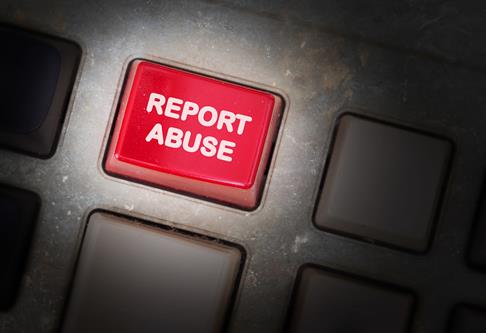Everyone deserves the opportunity to go to work without the threat of facing sexual harassment or assault. The unfortunate reality is that many people never get that luxury. Harassment is common in the workplace, and in some situations, the behavior can rise to the level of a crime.
If you believe you are the victim of a crime, you should notify the police right away. While some acts of sexual harassment might not reach the level of a criminal act, you have other options you can pursue to hold them accountable. This starts with a civil lawsuit against the harasser and anyone who empowered them. Reach out to the Gomez Trial Attorneys today to learn more.
Is Sexual Harassment a Crime?
The issue with reporting allegations of sexual harassment to the police is that, in many cases, it is not a crime. Of course, every act of sexual harassment is different. While making unwanted sexual comments or suggestive jokes might not rise to the level of criminal activity, many other acts that occur at work might be.
You should never assume that the behavior you experience is lawful or allowed. Before you call the police, you have the opportunity to speak with a sexual harassment lawyer first. Your attorney can not only advise you if speaking to the police is a good idea, but they can help you pursue a civil case even when a crime has not been committed. Some of the scenarios where you should report harassment to the police immediately include the following:
Anything Involving Physical Touch
The law treats physical contact very differently than words alone. In California, any contact with another person that could be considered harmful or offensive can lead to an assault charge. This is true even if you did not suffer a physical injury at the time. This must include willful contact, as accidentally touching someone is not enough to rise to the level of assault. The extent of the potential consequences is much greater if this contact results in your injury.
Sexual Assault
If you experience sexual assault at the workplace, you should notify the police right away. This includes any kind of contact with the intimate parts of your body against your will. These cases can involve anything from unwanted contact to acts of rape.
Indecent Exposure
Indecent exposure is another type of criminal act that can take the form of workplace sexual harassment. This crime involves someone willfully exposing themselves to you, knowing it will likely be offensive. The behavior generally occurs for the purposes of sexual gratification. You should notify the police right away if this happens to you.
Stalking
Sexual harassment can also be a crime in cases that do not involve being touched by another person. If you believe you are the victim of stalking, you should notify the police right away. Stalking involves two distinct elements:
- A person willfully and maliciously harasses or follows you, and
- They made a credible threat that made you reasonably fear for the safety of yourself or your family.
The term stalking usually leaves people with visions of being followed, but it can include any harassing action designed to scare you. In some cases, it is treated as a felony with a maximum prison term of five years.
Other Steps to Take Following Workplace Sexual Harassment
There are other steps you can take when you have been harassed at work outside of notifying the police of a crime. The following steps could help you protect yourself and your claim.
Make a Written Report
Not only should you make a report to your employer, you should do so in writing. This can be uncomfortable or even embarrassing, but it is important that you document this behavior right away. Any delay could work against you and leave your harasser free to continue to act inappropriately. You should make this report to your direct supervisor unless they are the source of the harassment. Alternatively, you can notify a member of the Human Resources department or the owner of the business.
Document Everything
As best you can, document every aspect of the harassing behavior. This means retaining emails, notes, text messages, or social media posts that are inappropriate in any way. Keep a written journal of dates and times this harassment occurred, and note any witnesses who may be able to corroborate your story. These efforts can be helpful in the future to refresh your memory.
Pay Attention to Your Environment
It is also a good idea to take note of the environment at your workplace. Do you see a pattern of harassment involving the person who targeted you or others? If there are obvious examples of harassment, it may be possible to find another victim to corroborate your story.
Talk to a Lawyer
Even if the police can’t help you, an attorney can. There is a complex process to follow when filing a lawsuit, and a single misstep could allow your harasser to avoid any consequences. An attorney can also advise you on your options and help you understand the possible outcomes of your case.
Reach Out to Gomez Trial Attorneys to Discuss Your Options
If you were harassed or assaulted at work, it may be time to notify law enforcement. If a crime was committed, it is up to the police to investigate. However, you may have other options in civil court even if the police choose not to pursue charges.
For help, contact Gomez Trial Lawyers today for a free consultation by calling 866-TRIAL LAW (866-874-2552) or by contacting us online.


